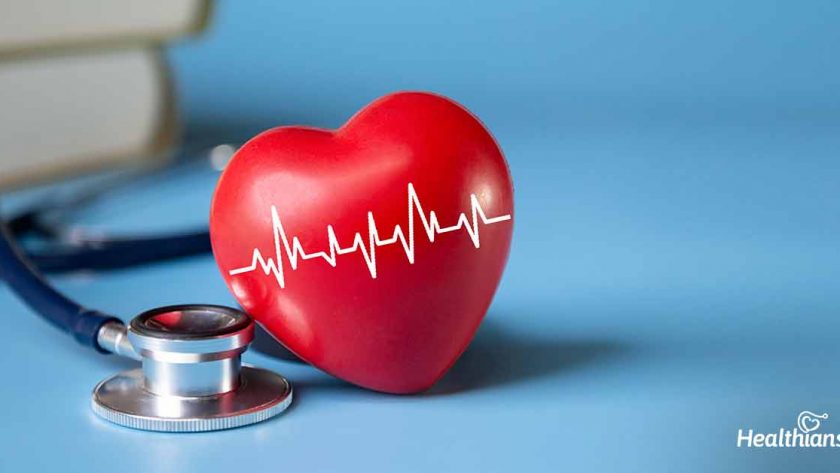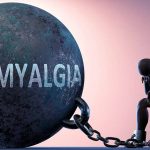[ad_1]
Contributed by: Rachana Arya
Introduction
The basic job of the heart is to pump oxygen- and nutrient-rich blood to your body in a rhythmic manner. Any disturbance in this pattern can put your health in jeopardy. An irregular heartbeat, often known as arrhythmia, is the improper beating of the heart, whether it seems irregular, too quickly, too slowly, or irregularly. These changes in your heartbeat occur when the electrical impulses in the heart don’t work properly.
Sometimes, it’s just a single skipped beat, but arrhythmias can last longer. When this happens it’s important that you place yourself into the care of a cardiologist. In this article, we discuss how to assess and treat irregular heart rhythm issues, or heart arrhythmias.
FAQ #1: How serious is arrhythmia?
The heart may not be able to pump enough blood to the body if the heartbeat is too fast, too slow, or irregular. Arrhythmias are linked to a variety of significant symptoms that can impair your body’s capacity to function properly.
FAQ #2: How do you feel when you experience arrhythmia?
A heart arrhythmia may be asymptomatic. However, when symptoms manifest, they can include:
-
- Shortness of breath
- Fluttering sensation in the chest
- Weakness
- Dizziness
- Lightheadedness
- Fainting or near fainting
- Chest pain or discomfort
- Racing or slow heartbeat
- Mental confusion
It is important to seek urgent medical attention as soon as possible if you suddenly or frequently experience any of these signs and symptoms.
FAQ #3: What causes arrhythmia?
Arrhythmias can occur for a variety of reasons, including:
-
- An overactive or underactive thyroid gland
- Certain disorders such as high blood pressure, diabetes, or sleep apnea
- Blocked heart arteries caused by coronary artery disease
- Changes in your heart anatomy
- A high-stress lifestyle
- Smoking, excessive drinking, drug abuse
- Consuming too much caffeine
FAQ #4: What triggers arrhythmia?
Common triggers for an arrhythmia are:
FAQ #5: What is the difference between heart palpitations and arrhythmia?
Arrhythmia is a condition in which the heart beats irregularly, either too rapidly or too slowly. Heart palpitation on the other hand is a brief sensation similar to that of a speeding heart or a brief arrhythmia.
FAQ #6: What are the dangers of heart arrhythmias?
Arrhythmias in the heart are linked to an increased risk of blood clots. A clot can spread from your heart to your brain if it breaks loose. It may obstruct blood flow, resulting in a stroke. If you have heart arrhythmia and already have heart disease or are 65 years or older, your risk of stroke significantly rises.
FAQ #7: Can arrhythmias be cured?
Treatment for arrhythmias is determined by the kind and severity of the arrhythmia. In some cases of this condition, there is no need for treatment. Medications are used to control abnormal heart rhythms. Once treated, most patients with a heart rhythm issue can return to their normal activity levels.
FAQ #8: What food to avoid if you have arrhythmia?
Foods that should be avoided include:
-
- Caffeine and energy drinks
- Alcohol
- Red meat
- Processed foods
- Sugary foods and drinks
- Salt
FAQ #9: Can stress cause heart arrhythmia?
Clinical studies and research is ongoing as to whether anxiety or stress can directly cause rhythm disorders. However, it can exacerbate arrhythmia. Higher-than-normal levels of stress, anger, and depression have all been shown to have a significant likelihood of arrhythmia.
FAQ #10: Is arrhythmia an emergency?
While some arrhythmias can be relatively serious or even life-threatening, others may be completely harmless. If you notice something strange about your heartbeat, seek medical attention right away so that doctors can determine what’s going on and what you should do about it.
FAQ #11: Does exercise help with arrhythmia?
The rule of thumb to prevent arrhythmia is to choose yoga or cardio over weightlifting. Walking can help reduce the onset of arrhythmia symptoms. It is important to talk to your physician before starting an exercise program.
FAQ #12: How do you fix arrhythmia naturally?
The following methods can help control an irregular heartbeat:
-
- Perform relaxation techniques
- Reduce caffeine intake
- Stimulate the vagus nerve
- Keep electrolytes balanced
- Keep hydrated
- Limit excessive alcohol intake
- Quit smoking
- Exercise regularly
- Eat a heart-healthy diet
FAQ #13: Which position should you sleep in if you have arrhythmia?
It is recommended that to ensure optimum blood flow and breathing while sleeping, you should sleep specifically on the left side.
FAQ #14: When should I be concerned about heart arrhythmia?
If symptoms last for long periods of time, are significant, or come back time and again, it’s important to seek medical attention. If you feel dizziness, fainting, shortness of breath, or chest pain — seek medical attention right away.
FAQ #15: Does Ayurveda treat irregular heart rhythm?
The herb pipal tvak is useful for treating and preventing irregular heart rhythm. The cardiac muscles are also strengthened by this plant. This ayurvedic herb is very beneficial for keeping the body’s stress levels in check. Another natural herb that has cardioprotective properties and helps to provide relief in abnormal heart rhythms is Arjuna.
FAQ #16: How do you check for irregular heartbeats?
Your doctor may order lab tests to rule out underlying conditions like thyroid disorders or heart disease. He may also conduct an ECG or EKG to determine or diagnose an abnormal heart rhythm.
Final thoughts
You’ve probably heard this advice over and over again that the key to a healthy heart is: exercising, eating a heart-healthy diet, and quitting smoking. While it is critical for everyone to look after their hearts, it is especially critical to live a heart-healthy lifestyle if you have an irregular cardiac rhythm. Prevention is better than cure, and more so when it comes to heart health. It’s best to get regular heart health checks to ensure that your is healthy and beating the way it should.
Check Your Heart Health Today!
This post has already been read 5 times!
[ad_2]
Source link




